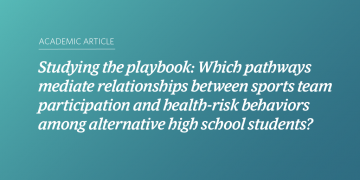The National Inventory of School District Interventions in Support of LGBTQ Student Wellbeing: Final Report
The National Inventory of School District Interventions in Support of LGBTQ Student Wellbeing was one of five research areas in a large project funded by a $2 million grant from the Canadian Institutes for Health Research and headed by Dr. Elizabeth Saewyc at University of British Columbia, “Reducing stigma, promoting resilience: Population health interventions for […]
Chasing the rainbow: lesbian, gay, bisexual, transgender and queer youth and pride semiotics
Abstract While the pride rainbow has been part of political and social intervention for decades, few have researched how lesbian, gay, bisexual, transgender and queer young people perceive and use the symbol. How do lesbian, gay, bisexual, transgender and queer youth who experience greater feelings of isolation and discrimination than heterosexual youth recognise and deploy […]
Being Safe, Being Me: Results of the Canadian Trans Youth Health Survey
A national study by SARAVYC showed that while Canada’s transgender youth face significant physical and mental health issues, strong family, school and community connections help many of them navigate these challenges. The study, funded by the Canadian Institute for Health Research and completed in collaboration with universities and health researchers across Canada, was the first […]
Reorienting risk to resilience: street-involved youth perspectives on preventing the transition to injection drug use
Abstract Background: The Youth Injection Prevention (YIP) project aimed to identify factors associated with the prevention of transitioning to injection drug use (IDU) among street-involved youth (youth who had spent at least 3 consecutive nights without a fixed address or without their parents/caregivers in the previous six months) aged 16–24 years in Metro Vancouver, British Columbia. […]
Canadian Trans Youth Health Survey Infographics
Two infographics from the 2014 Canadian Trans Youth Health Survey. One infographic outlines the key findings from the survey while the other outlines the recommendations.
Assessing exploitation experiences of adolescent girls and boys seen at a Child Advocacy Center
Abstract The primary aim of this study was to describe the abuse experiences of sexually exploited runaway adolescents seen at a Child Advocacy Center (N = 62). We also sought to identify risk behaviors, attributes of resiliency, laboratory results for sexually transmitted infection (STI) screens, and genital injuries from colposcopic exams. We used retrospective mixed-methods with in-depth […]
We all have a role: Building social capital among youth in care
Research has shown the value of social capital in relation to an individual’s health, happiness, and improved life expectancy, as well as the benefits to a community of having social networks that can come together to support the community and make positive change happen. Using data from the 2013 BC Adolescent Health Survey which was […]
Beyond the stereotypes: Variation in sexual exploitation experiences of youth evaluated at a hospital-based child advocacy centre [abstract]
Purpose: Much of the current research about sexually exploited youth draws from street youth services or programs for exiting, yet clinical services may reach a different population. The primary aim of this study was to describe the abuse experiences of sexually exploited runaway adolescents assessed at a hospital-based child advocacy center. We also sought to […]
Studying the playbook: Which pathways mediate relationships between sports team participation and health-risk behaviors among alternative high school students?
Abstract Alternative high school (AHS) students engage in high levels of substance use and risky sexual behaviors. Sports team participation holds great potential for building resilience and preventing health-risk behaviors. Yet, little is known about sports team participation among this population. We used logistic regression-based path analytic frameworks (multiple mediator models) to simultaneously explore whether […]
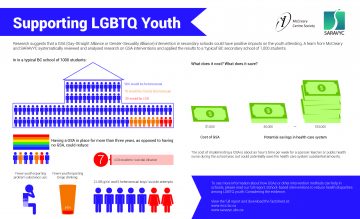
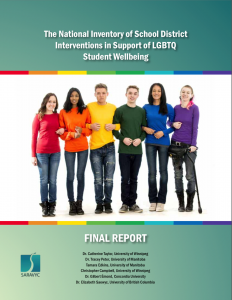
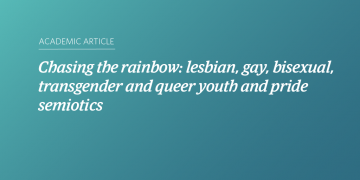
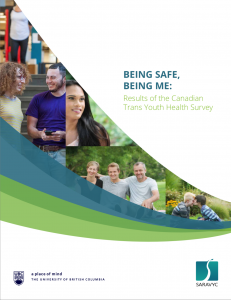
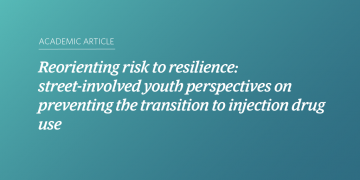
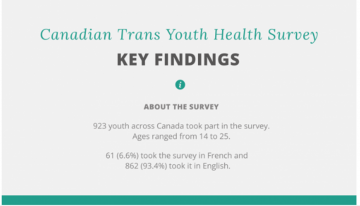
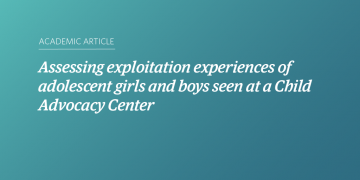
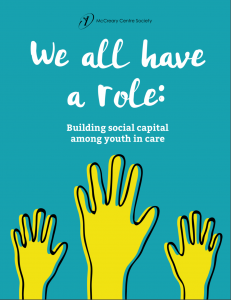
![Teal and blue gradient background with white text that says “Beyond the stereotypes: Variation in sexual exploitation experiences of youth evaluated at a hospital-based child advocacy centre [abstract]”](https://www.saravyc.ubc.ca/files/2014/05/Beyond-the-stereotypes-Variation-in-sexual-exploitation-experiences-of-youth-evaluated-at-a-hospital-based-child-advocacy-centre-abstract_Twitter-360x180.png)
